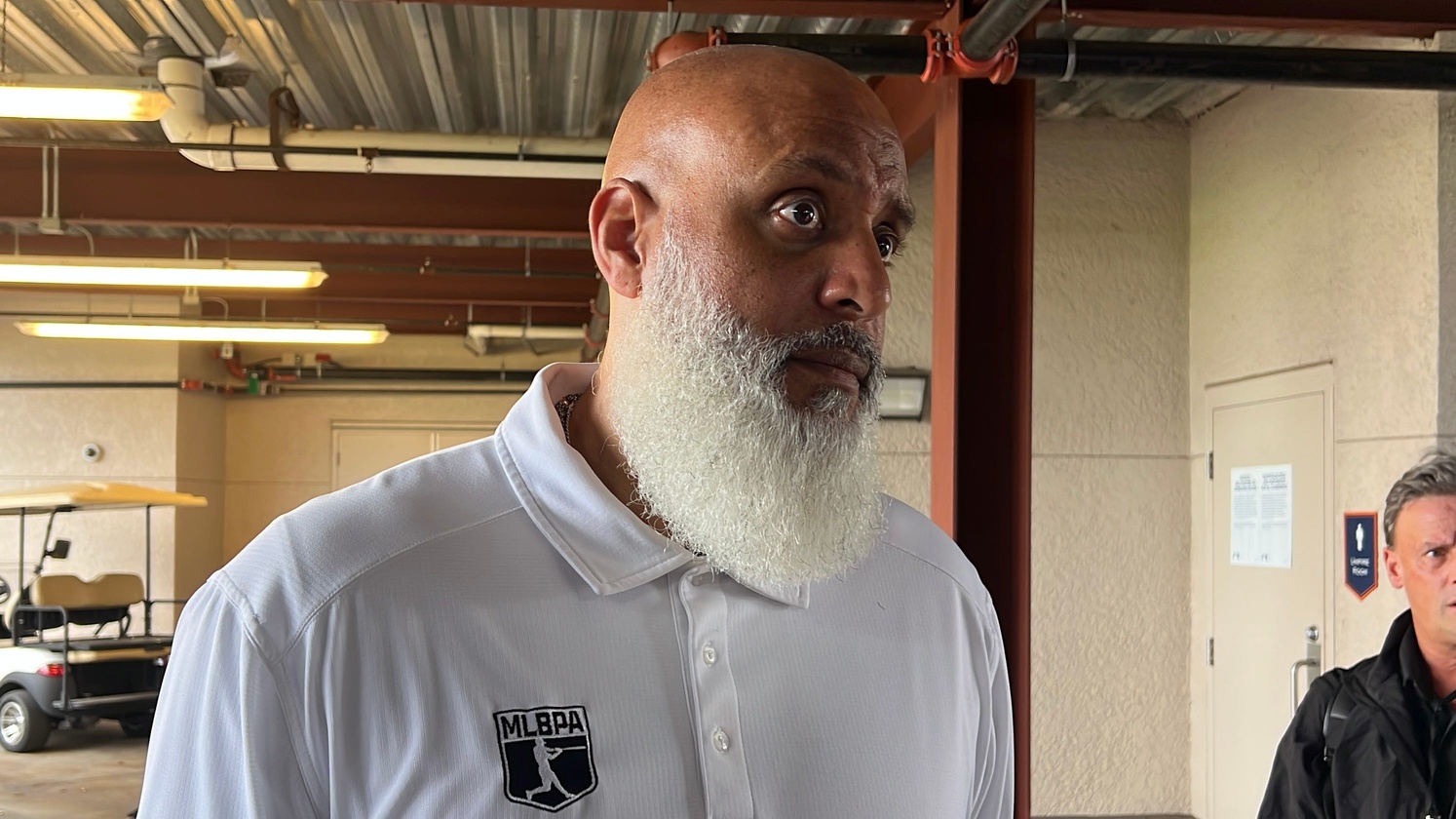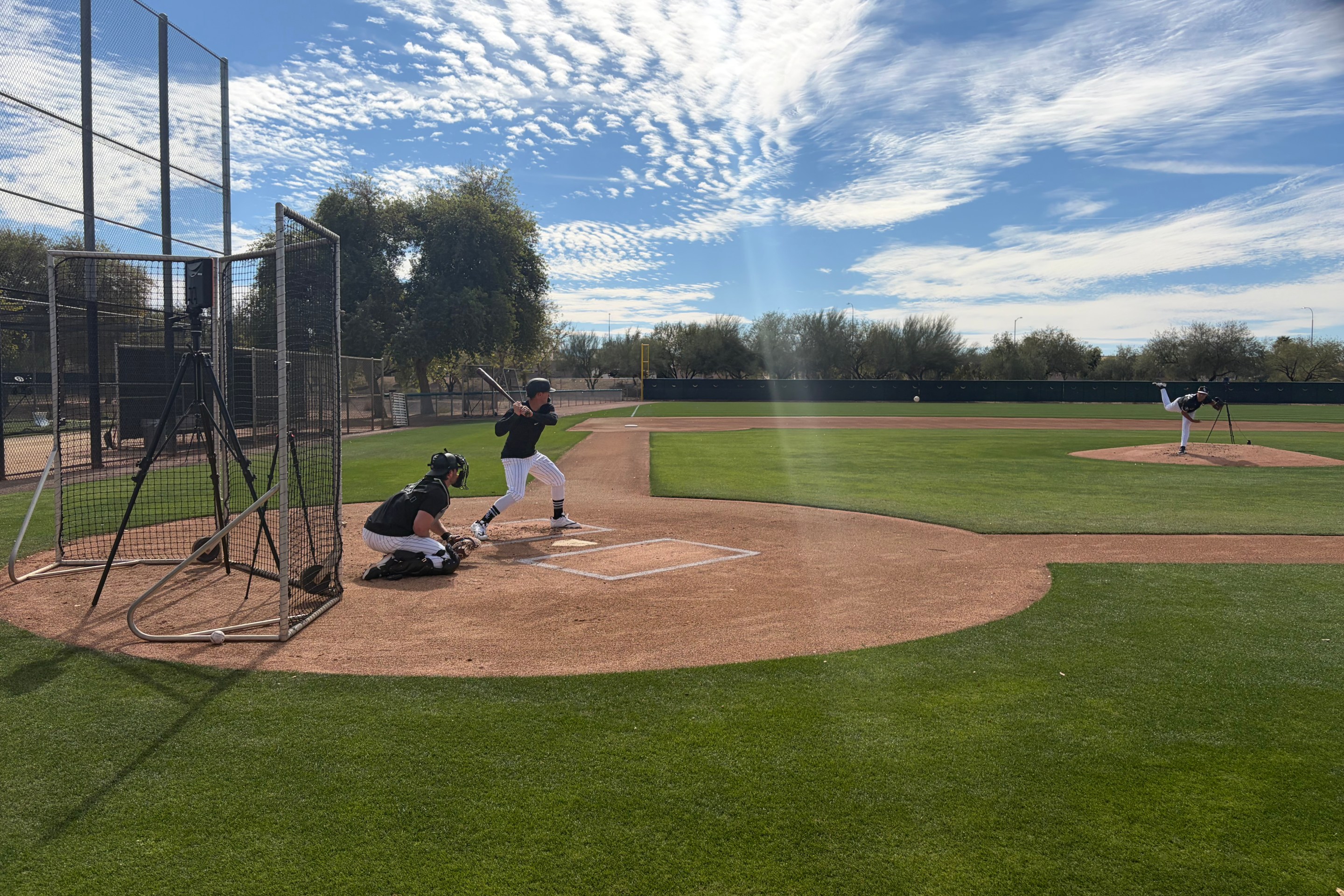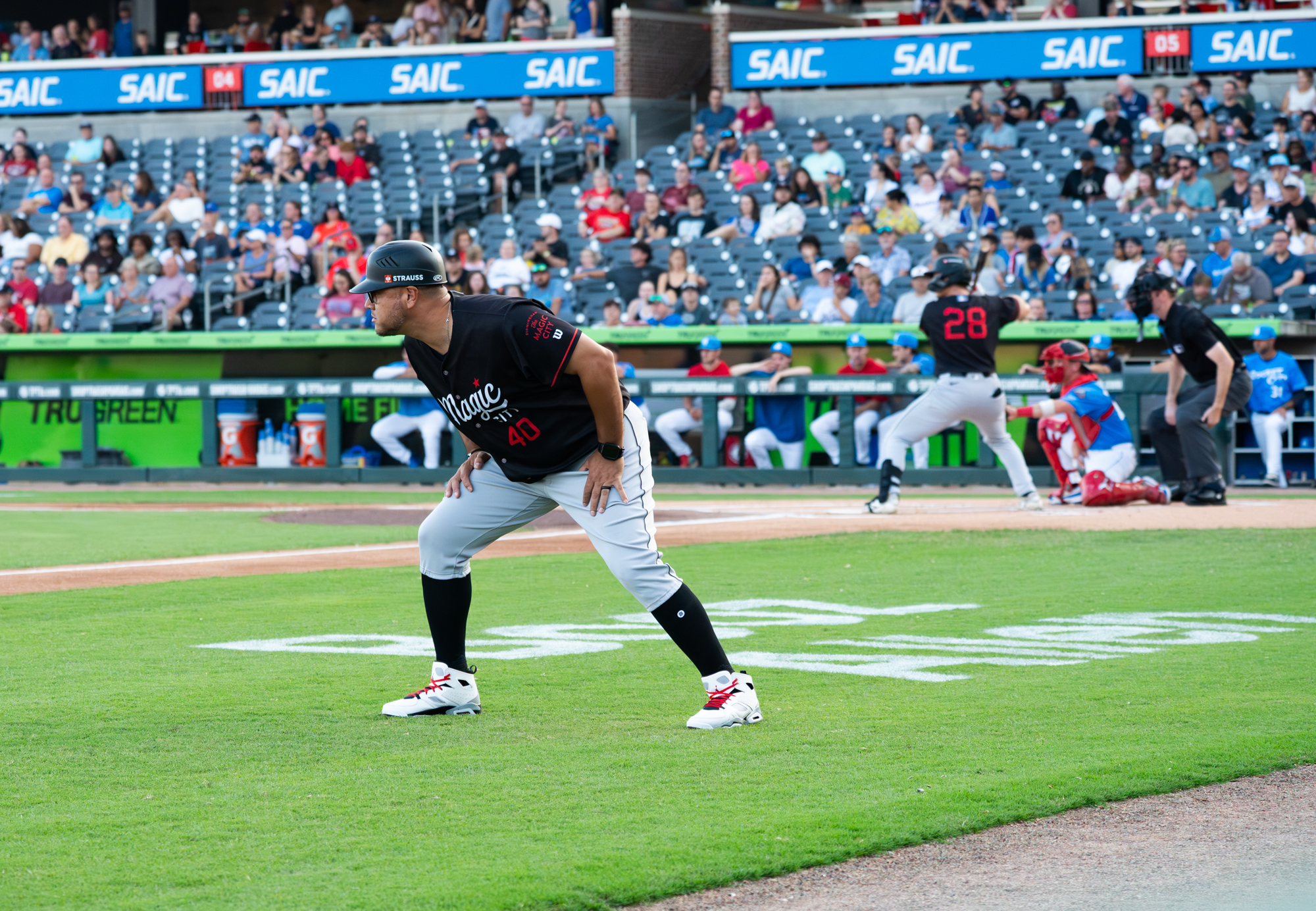A couple of weeks ago, I looked through the Statcast data to see whether Andrew Vaughn made any drastic changes with Milwauke that allowed him to discover the kind of power that eluded him most of the time with the White Sox. The only thing that jumped out was a slightly shorter, slightly quicker swing.
Vaughn refuses to stop hitting, to the point that those who aren't predisposed to fixate on White Sox regrets are also taking notice. He's hitting .377/.444/.701 over 22 games and 90 plate appearances for the Brewers, and nothing looks the same:
| Team | PA | AVG | OBP | SLG | wOBA | BB% | K% | HR/FB |
|---|---|---|---|---|---|---|---|---|
| CHW | 193 | .189 | .218 | .314 | 42 | 3.6 | 22.3 | 8.3 |
| MIL | 90 | .377 | .444 | .701 | 215 | 11.1 | 13.3 | 33.3 |
He's riding a 12-game hitting streak, and the Brewers are already printing "King Vaughn" t-shirts, so neutral third parties are beginning to notice and wonder.
For instance, he appeared on Foul Territory today, where even former pros Kevin Pillar and Cameron Maybin couldn't get more evocative answers than he gave to reporters, but he did briefly break character when asked about what Milwaukee manager Pat Murphy called him.
"I haven't gotten a nickname yet," Vaughn said. "I didn't get a nickname-- I'm gonna say it's not a nickname, but I was going up there, first couple of at-bats, I think I hit a rollover, got jammed, broke my bat. And [Murphy] just looked at me and said, 'Hey man, just play like a neanderthal up there. Don't think, don't have any knowledge, just play,’ and I was like, 'Huh.'"
And then upon sensing a potential level of dangerous introspection, Vaughn's phone dropped the connection.
Fortunately, Michael Baumann also took a crack at explaining why Vaughn, why not in an article at FanGraphs today. He also sees the shorter, quicker swing among other minuscule tweaks, but he also offers some explanation for why it's playing up so drastically.
Whatever adjustments Vaughn has made, he’s swinging with more force and confidence against secondary stuff. Or the causal arrow is going the other way, and whatever tweaks he’s made have given him the ability to wait a nanosecond longer to identify those pitches and therefore make better contact.
And once that contact comes, it’s more productive; Vaughn hit 27.3% of his batted balls to the opposite field during his last few months with the White Sox. In his time with Milwaukee, he’s cut that mark nearly in half, to 14.9%. More balls to the pull side mean more cheap homers and doubles down the line.
Baumann also points out that Vaughn is playing far more frequently with the platoon advantage than he did with the White Sox (38.9 percent of pitches seen have come from lefties, as opposed to 17.3 percent with Chicago). That doesn't explain it all, because Vaughn hit lefties worse than righties this year with the White Sox, and hasn't been a huge platoon guy since his rookie year, but it speaks to the idea that the Brewers don't have to play him. They can play him when they want to, and right now, they want to play him.
My sense is that it's a series of small changes -- more efficient movements, more optimal matchups, a sense that games matter again -- resulting in a sum that's larger than its parts. There's also a chance that the game, or the league, will eventually cause Vaughn to reverse course (Gavin Sheets is hitting .228/.301/.348 since June 1, so he's fallen to 0.2 WAR and a 102 OPS+), but a good team will draw out that process as long as possible.
⚙️⚙️⚙️
And the Brewers are a good team. Right now they're a great team. At 70-44, they own the best record in baseball with games to spare. This comes despite losing -- either by trade, free agency or poaching -- their president of baseball operations, their manager, their ace, their closer and their starting shortstop over the last five years, and somehow they've only gotten stronger.
This being the case, The Athletic's Andy McCullough took a look at how the Brewers keep doing it. In turn, he provided a little bit more insight about Vaughn's transition than Vaughn himself was willing to provide:
“Just getting him in a different environment, with a different level of pressure, we thought would be a good change of scenery for him,” [Matt] Arnold said.
When Vaughn received his promotion, the staff provided marching orders, just as they did for [Quinn] Priester. If he did not swing at strikes, he would not stick around. The message left little room for interpretation, which is one of Murphy’s hallmarks.
“It’s professional baseball, at the end of the day,” Yelich said. “I think people lose sight of that sometimes. Like, wanting it to be like, ‘Oh, you’re doing great and it’s OK.’ Sometimes, it’s not OK. It’s the big leagues. There’s a league for other s—, and it’s not this one.”
Zooming out, there's an element of secret sauce that remains out of reach. There's emphasis on selflessness and execution; a mutual agreement that players will not be asked to do what they can't do, but are expected to do what they can do to the best of their abilities, but underneath it, there must be a model that finds talent it can develop, and understands the talent it can't. I don't think Lenyn Sosa goes to Milwaukee and stops making mistakes, although I wouldn't mind seeing everybody involved take a stab at it.
When you read about the value the Brewers get out of baserunning and defense, you can see strains of what the White Sox are trying to do with secondary leads and pre-pitch movements. Of course, they're already making their Milwaukee fascination abundantly clear by luring away Walker McKinven to be their bench coach and running out of fingers to count the former Brewers who have played for them, but there are worse teams to emulate, especially if they're running on similar budgets. It's certainly a healthier, more relevant example than Dayton Moore's late-stage Royals, that's for sure.






